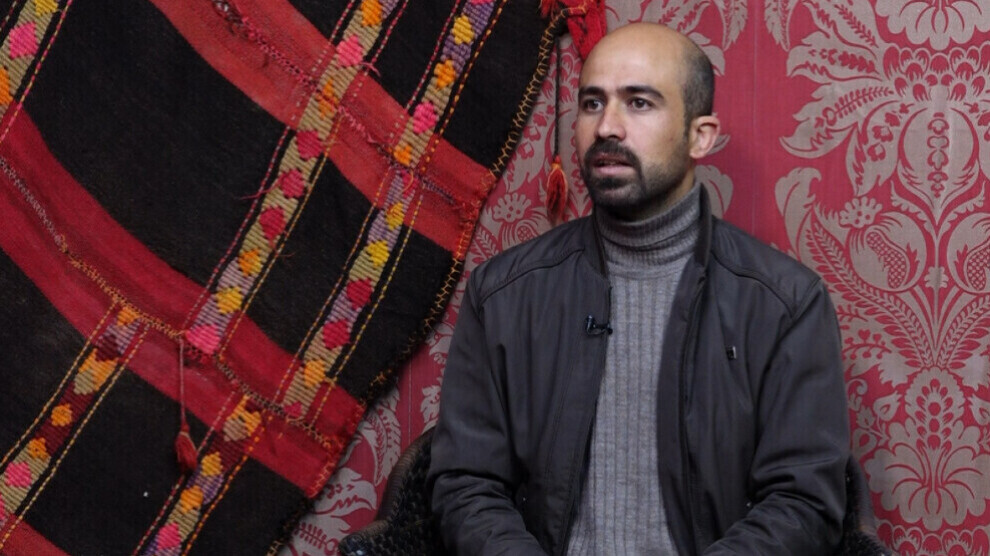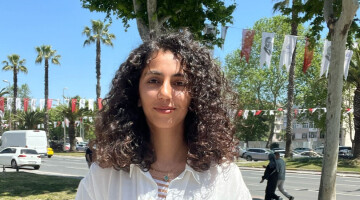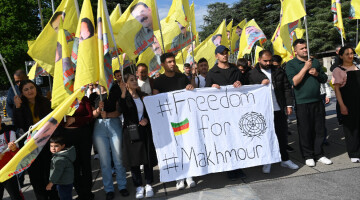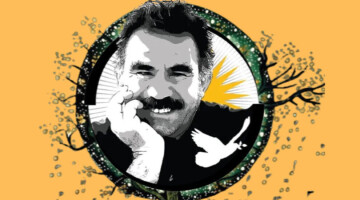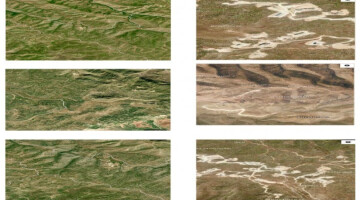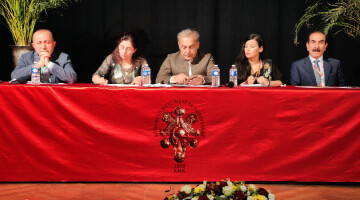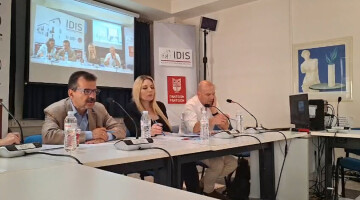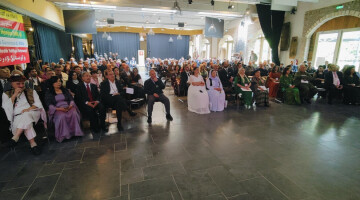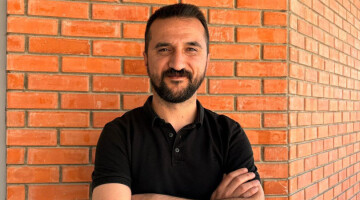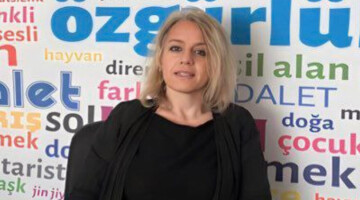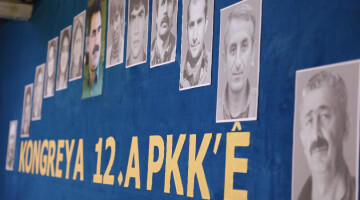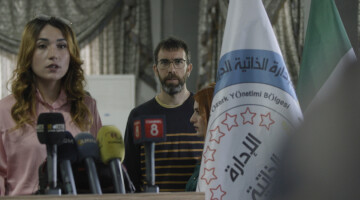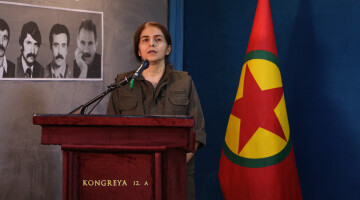Faris Herbo, Shengal’s foreign affairs representative for the autonomous administration of Shengal, spoke to ANF about the latest developments in the main Yazidi area in South Kurdistan.
Herbo refers to the plans of the Iraqi government for the autonomous administration and the Yazidi society and says: “The leadership of Iraq does not want to solve the crisis in Shengal through dialogue. The Kurdish and international public urgently need to intervene."
Faris Herbo says that the autonomous administration would like Newroz to be an occasion for peace and coexistence this year. In the past few years the New Year celebrations in Shengal have been celebrated with great enthusiasm. “Unfortunately, Newroz this year comes at a sad time because the Iraqi government is putting obstacles in our way. The Iraqi army has cordoned off the main roads, so we cannot celebrate Newroz with the usual enthusiasm."
Herbo recalls the developments since the agreement on Shengal signed on 9 October last year between the Erbil and Baghdad governments. “Before this agreement, the people in Shengal lived in peace and security. In March and April in particular, our people returned to Shengal and brought the region back to life."
"Peace in Shengal has been disrupted since the agreement"
After the signing of the Shengal Agreement, the situation changed, says Faris Herbo. The calm atmosphere in Shengal had been disrupted. “The agreement between the Iraqi central government and the southern Kurdish regional government targets our leadership. There is now a serious security problem in Shengal. The agreement was promoted as an initiative to improve the situation in Shengal and to solve the existing problems. If that had actually been the purpose, such an agreement should have been made with us in the first place."
Referring to the security forces who are part of the autonomous administration, Herbo says: “There has been no security problem in Shengal, but serious problems have existed since the agreement was reached. The agreement is basically the plan to implement what happened in 2014 in a different way."
In the past five months, numerous discussions have taken place between the autonomous administration and foreign ambassadors as well as various political circles, says Herbo, adding: “All the circles we met have spoken out against the agreement and have declared that they support the demands of the Yazidi people. Our people have been mobilized since the signing of the agreement and is demanding, with democratic actions and peaceful methods, that their will be recognized and their demands accepted."
"Military operations cannot bring about a solution"
According to Herbo, in talks with the Iraqi government and other circles, the autonomous administration has always advocated resolving the problems in Shengal through dialogue. “We repeat that: we are in favour of dialogue. The problems in Shengal cannot be solved through military operations. We have informed the Iraqi government that the project we are working on complies with the Iraqi constitution and is in no way illegal. According to the Iraqi constitution, every community has the right to organize and defend itself. We developed a project according to the legislation and submitted it to the Iraqi government. However, it looks like Iraq does not intend to resolve the problems through dialogue.”
The intention of Iraq is to replace the autonomous administration
Herbo describes the intention of the Iraqi leadership as follows: "Iraq wants to tell us: 'You have resisted and defended Shengal, thank you for everything, now we are here and you will no longer have a role from now on.' It disregards the achievements of our people and our martyrs. It is very difficult to solve the problems that way."
A certain level has been reached in the discussions so far, says Herbo. Important work has taken place. Talking about the developments since 7 March, he says: “Since 7 March, the number of military posts has increased in some places and so has the pressure on the population of Shengal. We made contact with the military authorities in Shengal as well as in the east of Mosul and held many talks until 13 March. However, those in charge have been intimidating our people with methods such as threats, murder and the use of force."
"Only those in charge of the military spoke to us"
Herbo said that following the resistance that the people of Shengal put up against threats, a series of talks with high-ranking Iraqi military took place. “It was noticeable that all of our interlocutors were from the military while there was not a political representative in the Iraqi delegation. In any case, it turned out that there was not the slightest intention of solving the problems through dialogue. If they had really been about a solution, at least some political representatives would have been there and would have passed our demands to the Prime Minister."
Less than a week after the talks with the Iraqi side, the Iraqi army has deployed more troops in the region, says Faris Herbo. “Every day, more roads are blocked off in Shengal, and this worries the population of Shengal even more. It looks like Iraq does not intend to recognize our existence, our legitimate rights and our demands. It may be that what some forces in the army under the control of al-Kadhimi are doing in Shengal is not in line with the general policy of the Iraqi government."
"There is urgent need to put pressure on al-Kadhimi"
Certain circles would increase the pressure on Shengal to such an extent out of their own interests, says Herbo. "Our people will not accept the pressure and the plans for Shengal." He added: “We do not want the crisis in Shengal to worsen. We declare that the problems cannot be solved by military means. "
The forces of Mustafa al-Kadhimi posed a serious threat to Shengal and exerted pressure, says Herbo, ending his remarks with an appeal: “We want to warn our people and all democratic circles about the danger posed to Shengal. In order to stop the threats against Shengal, pressure must be exerted on al-Kadhimi as a matter of urgency. War would bring no benefit to Iraq and the region."

